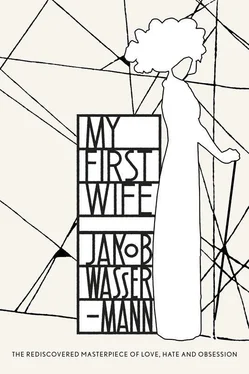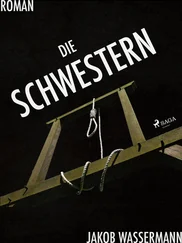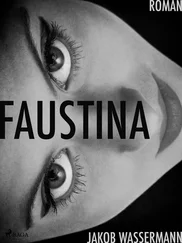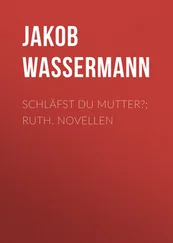Jakob Wassermann - My First Wife
Здесь есть возможность читать онлайн «Jakob Wassermann - My First Wife» весь текст электронной книги совершенно бесплатно (целиком полную версию без сокращений). В некоторых случаях можно слушать аудио, скачать через торрент в формате fb2 и присутствует краткое содержание. Год выпуска: 2012, ISBN: 2012, Издательство: Penguin Books Ltd, Жанр: Классическая проза, на английском языке. Описание произведения, (предисловие) а так же отзывы посетителей доступны на портале библиотеки ЛибКат.
- Название:My First Wife
- Автор:
- Издательство:Penguin Books Ltd
- Жанр:
- Год:2012
- ISBN:9780141389363
- Рейтинг книги:4 / 5. Голосов: 1
-
Избранное:Добавить в избранное
- Отзывы:
-
Ваша оценка:
- 80
- 1
- 2
- 3
- 4
- 5
My First Wife: краткое содержание, описание и аннотация
Предлагаем к чтению аннотацию, описание, краткое содержание или предисловие (зависит от того, что написал сам автор книги «My First Wife»). Если вы не нашли необходимую информацию о книге — напишите в комментариях, мы постараемся отыскать её.
Posthumously published in 1934 and based on the author Jakob Wassermann's own ruinous marriage,
bears the unmistakable aura of true and bitter experience. It is a tragic masterpiece that unfolds in shocking detail.
My First Wife — читать онлайн бесплатно полную книгу (весь текст) целиком
Ниже представлен текст книги, разбитый по страницам. Система сохранения места последней прочитанной страницы, позволяет с удобством читать онлайн бесплатно книгу «My First Wife», без необходимости каждый раз заново искать на чём Вы остановились. Поставьте закладку, и сможете в любой момент перейти на страницу, на которой закончили чтение.
Интервал:
Закладка:
The conversion of the house hadn’t, as I’d supposed, got in the way of her other work. From time to time she made mysterious references to me to some sort of book that she was writing, for which she had the loftiest expectations. So far as I could glean from her words what she had in mind was a prose narrative, an account of her life and sufferings, a memoir of spousal love and constancy. Often she said, wide-eyed, that in the conception of the work she’d above all had me in mind, the only thing that mattered to her being to free me from the error I’d committed; once I’d read her book, seriously and attentively, as she stipulated, then there would be no question but that I, shaken by the truthfulness of her account, would return to her forthwith. All this she said in her typical fashion — threatening, flattering, accusing — in which she had such mastery.
Earlier on in these reminiscences I had occasion once to mention the mischief done by literature. The world I was referring to then was decent and harmless, blatant in its deceits, pathetic even in its efforts to use art and intellect as a figleaf for its nakedness. Since then, three decades have passed. The amateurish belletristic Ganna world of that time is as different from today’s heady iconoclasm as a water pistol is from a Gatling gun. It used to be that they played with their innocent weapons at literary teas; now they are shooting in deadly earnest. They set word-bombs, they throw word-grenades, they poison the world with printer’s ink; every frustrated idiot, every publicity-crazed complainer dumps his revenge complexes from his desk onto the street below; there’s no question of any inner calling, or truth and honesty; paper is cheap, the setter willing, the word costs nothing; the call to arms of the epoch is write and howl down all the other misery of humankind, which gradually gurgles its last under a mound of paper.
Hardly surprising then that Ganna too was contaminated by the plague, sought her salvation in the production of printed matter; after all she was born with a pen in her mouth, writing had always been the essence of her being, her most living expression, her emphatic insistence, her refuge and her consolation. And this passion, which was so close to being a vice, in the same way that a good book from the outside may resemble a bad one, grew unstoppably. I think it was the source of all her unhappiness, her disorder, her godlessness, because it replaced the mirror in her heart wherein every soul-endowed creature can recognize itself — itself with death over its shoulder, the way it is shown in old paintings. She didn’t think about death, she knew nothing of God and over the mirror of her heart she had stuck a ream of paper, so that she could write and write and write …
The slim volume, a novella, had the nauseating title Psyche Bleeds . There was already a publisher who had agreed to take it on, probably in the hope of a minor scandal. It didn’t pan out; there was a storm in a teacup, nothing more. The letter which Ganna enclosed with her product was a sort of written cringe. Further insistence on her love, further humiliating reference to the need to make money. All in all, the blurting of an uneasy conscience.
I opened the book. I read grotesque absurdities. My first instinctive act was to hide it so that Bettina didn’t see it. But once I was alone in my study I would sometimes get it out of the heap of books I had put it in with, in the way that one might look at some obscene pornography after first throwing it away in disgust. What was this thing so palpably on paper! Behind a cloud of emotional gush and saccharine romance I could make out a dirty distortion of Bettina’s likeness, the depiction of her ostensible sins and sly contrivances, with the addition of a shameless bed and adultery scene in which the cheated husband is supposed to excite the sympathy of the reader. Bleeding Psyche was — you guessed it — Ganna, the white archangel Ganna, pursued and violated by the tribadic monster of a Bettina.
Friends and acquaintances occasionally came to me to express their sympathy. Here and there, from the holes which lurking enviers and haters had crept into, there was a malignant murmuring. Ganna did publicity for her opus and spurred her journalist chums to praise it in the papers. In the end it was inevitable that I spoke about the book with Bettina, especially as she had heard about it first from Hornschuch, then from divers other sources. I have never witnessed anything finer and nobler than the way she disregarded the squalid demeaning of her person. Of course she was bound to feel contaminated, she hated talk, whether it was well meaning or not; but there was no power on earth that could get her to read the book, or so much as touch it with her little finger. For her there was only one thing that mattered, as I understood only far too late — namely what I thought of it and what consequence I would draw from it.
WITH THE ROSES
Bettina stood in the garden, dabbing the murderous greenflies off her roses. Sometimes, when a bloom had been especially ravaged, she would mutter crossly under her breath. Next to the container with the insecticide was a tin bath of water with a syringe floating in it. Little Helmut was larking about, babbling and crooning. You couldn’t imagine a finer opportunity for mucking about with water.
All at once he gave a blood-chilling scream. He had fallen into the tub. I heard it too and ran out with my hair on end with terror. By the time I got there Bettina had already dragged the little wriggler out of the water. Calmly she stood him in the sun to dry off. And to me, standing there looking haunted, afraid our adored offspring had come to harm, she said, with a glance at the dripping little man: ‘Don’t worry. It won’t be the last time he gets a drenching.’ And with that she went back to her greenflies.
GUERRILLA WARFARE
I wrote to Ganna to say that for the time being I wanted nothing further to do with her. She was to apply to Hornschuch on all financial and domestic matters. Five lines. But why ‘for the time being’? Wasn’t that half a step back already? And wouldn’t Ganna, with her unerring sense of my weakness, draw courage from it for further stunts? For the time being! Puzzle me that one out, if you can; I can’t. I know I’m not the ‘never darken my doors again’ type. Maybe it was my principle, inevitable in one who always sees himself confronting the two faces of the world, the No and the Yes. There are mysterious insistences and persistences at play, and the mental and intellectual is as close to the traitorous as thinking is to not-doing.
Ganna didn’t accept the breach. Her letters were sweetness and light. Since I didn’t reply, she wrote an extensive defence of her literary work and had it sent to me, along with reviews from reputable critics, via Dr Mattern. Since I still didn’t respond, she instructed other intermediaries to plead her cause with me. I said to her people, if you eat garbage you first need to give your digestive system time to clean itself out. For a while Ganna kept silent, but before long the demands for money started coming again. Her allowance was too small for her to be able to live off it. The clothing and schooling of our two daughters cost several times more than what had been allotted for the purpose. Our old friends the ‘ imprévus ’ cropped up again. Considerable ‘backlogs’ had been run up; she had instructed Dr Mattern to send me the ‘vouchers’. Some of the backlogs dated from the time before the divorce; clearly, it had not come up to expectation.
I asked her why official seals and promises which for me had an absolute validity shouldn’t equally apply to her. I rejected the demands, but the continual ranting made me ill; I wanted quiet, peace from her. Medical opinion prescribed a lengthy stay in Marrakesh. I wrote to inform the children; Ganna begged me for a meeting before I left. I gave in to her pressure and agreed. Then one wasn’t enough, it got to be several. Ganna, riddled with anxieties, petitioned me for money, the housekeeping book put in an appearance, the numbered bills were produced, the ‘vouchers’ turned up. I could have said: what does it all have to do with me, I’ve paid and overpaid your bills and on the first of the month you’ll have my next instalment, ciao. But I wanted quiet, I didn’t want bickering and kvetching behind my back; I had enjoyed some unexpected successes that year, I was on the point of leaving on an expensive journey and even though I had intended to put something by for an emergency, I thought: damn it, and said very well, I was prepared to give her 10,000 schillings, of which she could have 8,000 right away. A couple of weeks later I opened a newspaper where one of her journalist friends worked, and saw an interview with her all about how she had to fight for money for her youngest child. Obviously she had got talking in front of some irresponsible fellow, and when she saw her froth set in the form of newsprint she was suddenly afraid and fired off a cable to me, where for the umpteenth time she swore by all that was high and holy that she was not to blame. I remained cool, but to chastise her for her lie I now held back the last 2,000 I had promised her. By now she had forgotten that the money was a gratuity and she demanded the rest, as if it had been a debt owing to her. She had already promised the money to a third person, and once again threatened to take me to court. Having received such a significant sum of money from me already, without any entitlement to it, she saw my pliancy as proof of her entitlement; above all it removed the least doubt in her about my Rockefeller-like wealth, her enjoyment of which had been hindered by the stupidity and wickedness of her lawyers. The deed was made the object of ceaseless study. She carried it around with her wherever she went by day, at night it lay on her bedside table. She knew its terms by heart and even so she immersed herself in it like a devout Jew in his Talmud. She was looking for a point she might attack. She found it soon enough in the clause relating to her monthly allowance. Her representatives had before the divorce argued that she should take a one-third share of everything I earned. This, however, I had rejected emphatically; I knew Ganna and saw that such a condition would have given her an opening for incessant nosing-around and demands for me to furnish her with my accounts. In its place a lifelong appanage had been agreed upon, at a fixed amount that was described as equivalent to one-third.
Читать дальшеИнтервал:
Закладка:
Похожие книги на «My First Wife»
Представляем Вашему вниманию похожие книги на «My First Wife» списком для выбора. Мы отобрали схожую по названию и смыслу литературу в надежде предоставить читателям больше вариантов отыскать новые, интересные, ещё непрочитанные произведения.
Обсуждение, отзывы о книге «My First Wife» и просто собственные мнения читателей. Оставьте ваши комментарии, напишите, что Вы думаете о произведении, его смысле или главных героях. Укажите что конкретно понравилось, а что нет, и почему Вы так считаете.







![Jakob Wassermann - Issue Does Not Exist],errors:{](/books/585068/jakob-wassermann-issue-does-not-exist-errors-thumb.webp)




